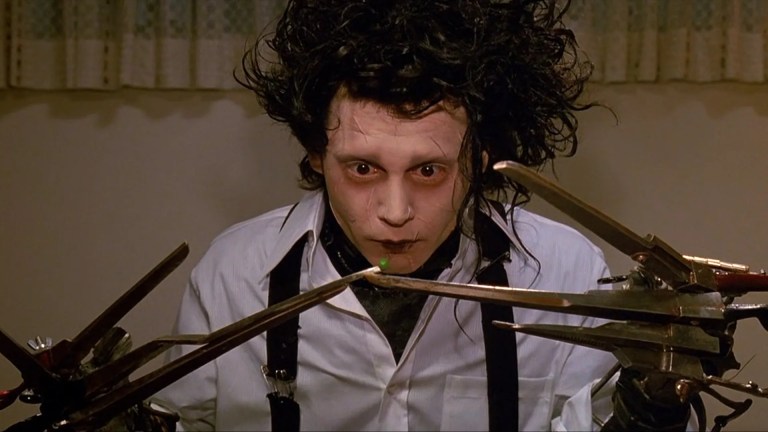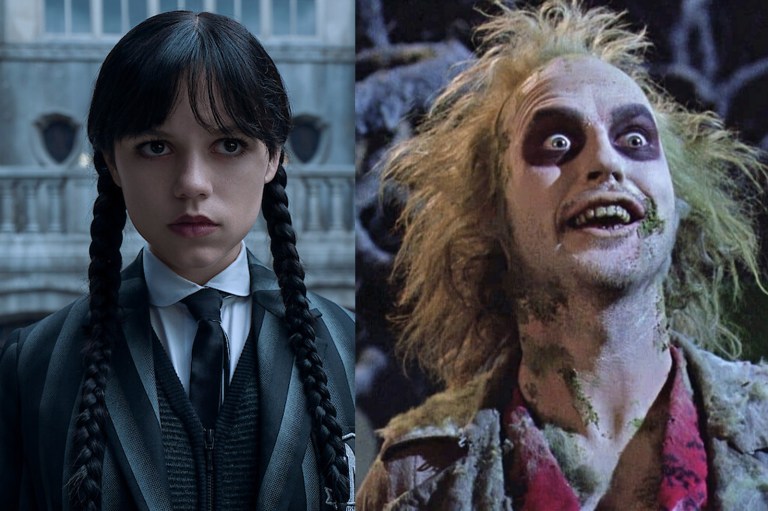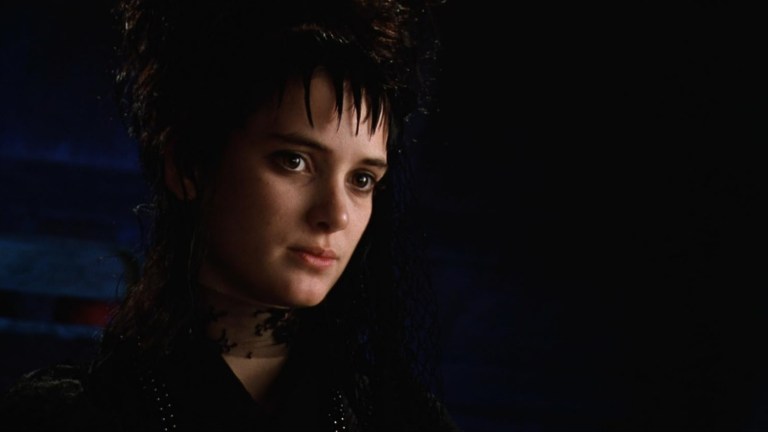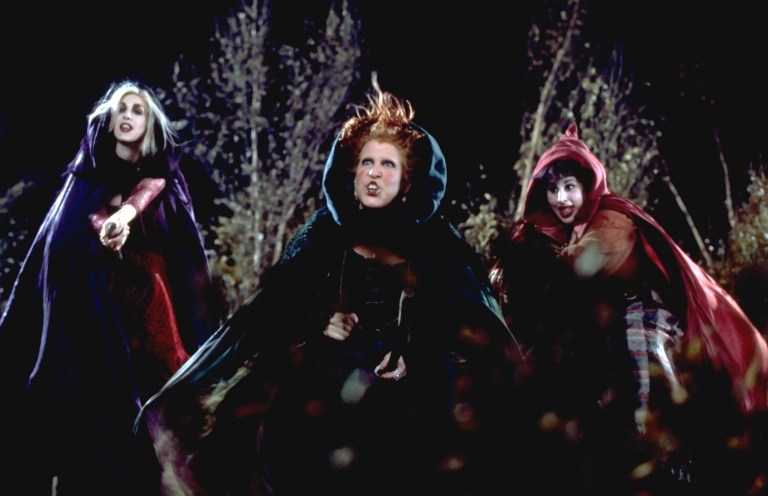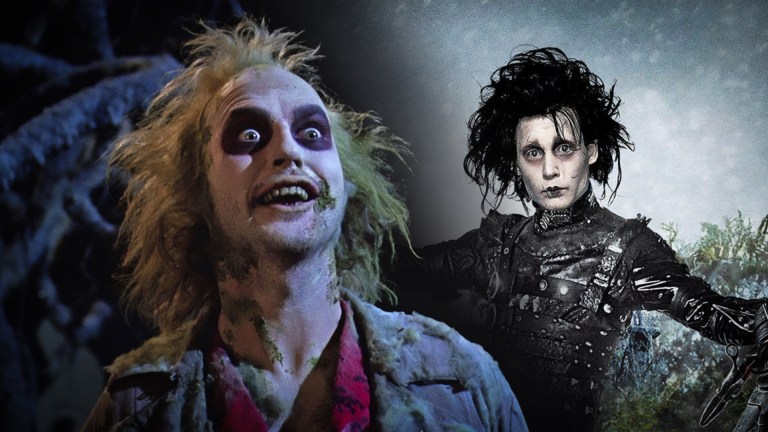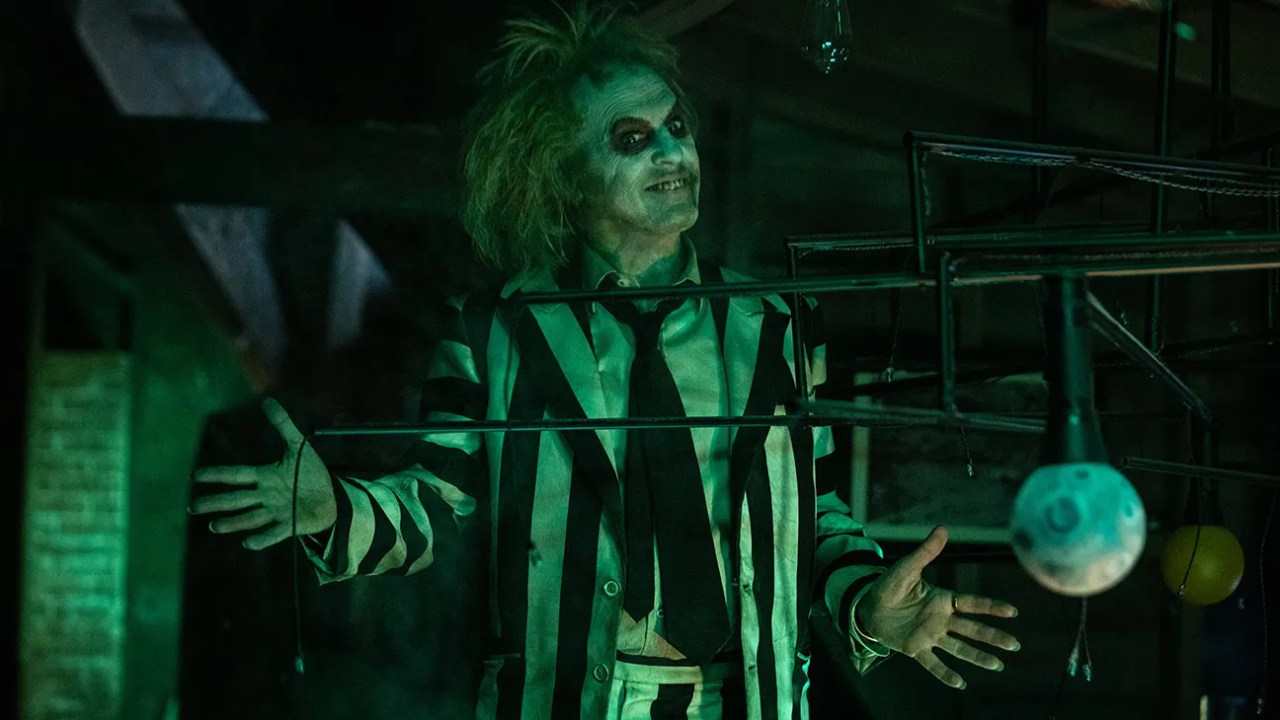
‘Beetlejuice Beetlejuice’ Confirms The Ghost With The Most And Tim Burton Aren’t Toast Yet
It might have taken nearly four decades to materialize, but Beetlejuice Beetlejuice doesn't disappoint those who need the pesky bio-exorcist and the Deetz family in their lives again.
It might have taken nearly four decades to materialize, but Beetlejuice Beetlejuice doesn’t disappoint those who need the pesky bio-exorcist and the Deetz family in their lives again.
As a filmmaker, Tim Burton has experienced a torrid time in recent years, with critics pouring holy water and holding out crucifixes to anything mildly representing Burtonesque filmmaking. Beetlejuice Beetlejuice provides a welcome return to his old stomping grounds, as he teams up with Michael Keaton, Winona Ryder, and Catherine O’Hara to sing “Day-o” one more time and to reinvigorate the surrealist magic from yesteryear.
Sure, the horror comedy ticks all the boxes of sequel-bait that studio executives cherish more than their own mothers, but it serves as an example of how continuations can be done right – as long as the heart and passion for the property are still there. Mild spoilers for Beetlejuice Beetlejuice follow.
An unshackled Tim Burton is the best Tim Burton
In an interview with Variety in August 2024, Tim Burton discussed the topic of Burtonesque – his signature style to filmmaking – and studios that approach him for it. “Well, as I get older,” he said, “when they say we want that, I go, ‘Oh, really?’ Because I’ve been through a history where they say they want it, but then maybe they don’t really want it.”
Take a look at his filmography over the past 10 to 15 years and this proves to be true. Studios celebrated the visionary, who created eye-catching films like Beetlejuice, Batman, Mars Attacks!, and Edward Scissorhands, when his movies made more money than sense; however, the Hollywood movie-making system changed. It has become risk-averse and driven by bean-counter-like algorithms rather than creativity. Studios wanted Burtonesque magic but within the confines of their tiny sandbox filled with numerous rules and asphyxiating bureaucracy, leading to failures such as Dark Shadows and Dumbo. This pairing was never going to work since studio execs believe German expressionism is a term to describe Christoph Waltz’s emotions, while Burton prattles off about Nosferatu and The Cabinet of Dr. Caligari.
Beetlejuice Beetlejuice uncages Burton from this suffocating system. It frees him to play in a madcap world in which he created and knows better than anyone else. His vision shines through in every shot as the director hops from stop-motion animation to black-and-white foreign language scenes, embracing practical and imaginative effects from a bygone era. It’s impossible to not fall in love with the likes of the adorable shrunken-head Bob whose jagged movements on screen in the Afterlife endear him more to the audience than if he had been nothing more than a CGI creation. Burton finds a way to create a story set in 2024, but it’s still guided by the same wacky mind from 1988.
A combination of old and new faces provides total delight
No one could blame the original Beetlejuice cast if they declined to return for Beetlejuice Beetlejuice. Thirty-six years is a long time to wait in between movies, and some might have been apprehensive about heading back to Winter River. However, the core of the original film – Winona Ryder’s Lydia Deetz, Catherine O’Hara’s Delia Deetz, and Michael Keaton’s Betelgeuse – show up in a big way, with the death of Charles Deetz acting as the plot mechanism to bring everyone back together again for his funeral.
Delia continues to be Delia, never being short on the theatrics or being a drama llama, brilliantly portrayed by O’Hara. Hilariously, when she breaks the news of Charles’ death to Lydia, she says he left her. Lydia presumes they’re getting divorced until Delia clarifies that he’s actually dead before recounting a colorful sequence of events that led to his death. Ryder’s Lydia remains sensitive and melancholic as before. She’s grown up a tad bit, though, concerning herself with the fractured relationship between her and her daughter, Astrid (Jenna Ortega), who saves her mother’s name as “Alleged Mother” in her phone and embodies the whole moody teenager vibe.
Keaton’s Betelgeuse hasn’t changed a bit from the first film, though. The rude, chatty, and unpredictable con man from the Afterlife still harbors a crush on Lydia and seeks Machiavellian ways to reconnect with her. However, he has another big problem on his hands: Delores (Monica Bellucci), a soul-sucking succubus from his past who is out for revenge.
While the old faces bring a sense of familiarity and comfort to the tale, the new cast members more than bring their part here. Justin Theroux plays Rory – Lydia’s boyfriend and quasi-bad guy who anyone can spot is a fraud from a mile away – with such aplomb that he makes himself memorable with every cringy attempt to secure attention in the story. Ortega slots right into this macabre tale too, effectively becoming the younger version of Lydia in the story and discovering the wackiness of her family’s history. Yet, special praise must go to Willem Dafoe as he plays the dead B-movie action star Wolf Jackson who believes he’s still a detective from one of his past roles. Dafoe portrays someone portraying someone else when he’s actually dead; however, he hams it up to perfection and commits to every gag at every turn.
Beetlejuice Beetlejuice reaffirms that sequels can be more than deliberate cash-grabs
Is Beetlejuice Beetlejuice in the same league as a sequel like Terminator 2: Judgment Day which improves upon the original movie? Nope. However, it doesn’t have to be. When Beetlejuice was released in 1988, no one had ever seen a film quite like it. It was unique and unexpected, becoming an instant classic and setting up Tim Burton to be the next big thing in Hollywood. For Beetlejuice Beetlejuice, it would be impossible to capture this sandworm-in-a-bottle effect all over again. If it ventured too far off, it would become unrecognizable to the people who loved the original. And if it was a reboot… Well, everyone only needs to see the reception toward 2024’s The Crow.
Instead, the sequel picks up where the last film left off – with 36 years in between the events of course. It understands what fans want to see and leans into more of that, rather than complete reinvention or feeble attempts at modernization. It’s fun, kooky, and captures the horror comedy appeal of Burton’s previous projects and beloved properties like The Munsters and The Addams Family. Simultaneously, it becomes obvious that the secret to Beetlejuice‘s success remains the sum of all its parts and the passion involved in making these movies. Without the likes of Burton, Michael Keaton, Winona Ryder, Catherine O’Hara, and the film’s special visual language, none of this would work.
Burton has been open about the fact that this latest entry won’t simply lead to a third movie. For him, it’s all about the story and if there’s a compelling-enough reason to return to these characters and this world. And at no point does Beetlejuice Beetlejuice feel like it’s promising more to the audience or setting up an endless slew of spinoffs. Instead, it lets the Juice loose for one more good time – and hey, if this is the end for real, the Ghost with the Most can rest easy in the Afterlife knowing he brought the laughs on every single occasion.
